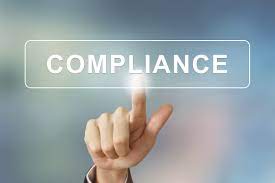In the short span of the 21st Century, the world’s two top powers, the United States and China, have moved inexplicably toward a showdown. This evolved from a commercial competition into something more akin to permanent non-kinetic warfare. What does this mean for US business doing business in and with China? For this special 5-part blog post series, I visited with Brandon Daniels, CEO of Exiger, to explore issues diverse as a real danger, supply chain, exports, cyber-attacks, and IP theft from the business perspective and give the compliance and business executive their viewpoints on what you can do to not only prepare your company but protect it as well. In concluding Part V, we lay out the business response to the coming conflict with China-good compliance.
In the face of rising tensions with China, it’s essential for businesses to take proactive steps to protect themselves. In the fifth and final episode of our five-part series on the coming conflict with China, we outline the integral roles of government, public companies, businesses, think tanks, consultants, product providers, and service providers in addressing the challenge. The importance of compliance as good business practice cannot be overstated. We also discuss the strategies of risk assessment and risk management necessary to weather the coming storm.
Here are the steps you need to follow to create good compliance in your organization to help you meet the China challenge.:
- Identify risks
- Assess risks
- Implement a risk management strategy
- Identify risks
The first step in addressing the upcoming conflict with China is to identify risks. This can be done by looking at the transcript and thinking about what risks are present in the context of the conversation. For example, the transcript mentions potential conflict with China, cyber intrusions, human rights abuses, national security threats, and IP theft. All of these topics should be considered potential risks that need to be assessed.
One of the main risks is the economic and national security threat that comes from insider threats. This includes cyber intrusions, credential theft, and other malicious activities. Additionally, public companies need to be aware of the potential for IP theft, human rights abuses, and other forms of economic sabotage. It is also important to understand the need for investment in cyber hardening, diversification away from China, and incentives for public markets. Finally, businesses must be aware of the need for risk assessment and risk management strategies, as well as the need to monitor and upgrade those strategies as necessary. All of these risks must be identified in order to effectively address the coming conflict with China.
- Assess risks
Once the potential risks have been identified, the next step is to assess the likelihood of the risks and their potential impacts. This can be done by looking at past experiences and current trends. It is also important to consider the potential of the risks, as well as the severity of the impacts. For example, if a risk involves cyber intrusions, it is important to consider the potential for data theft, as well as the impact of a data breach on the company’s reputation.
Finally, it is important to look at the potential solutions for the identified risks. This can be done by looking at the solutions that have been suggested in the transcript, such as regulation, funding, and raising awareness. It is also important to consider the potential costs and benefits of each solution, as well as the potential for implementation. By assessing the risks, the solutions, and their potential impacts, businesses can develop an effective risk management strategy.
3. Implement a risk management strategy
A risk management strategy is essential for preparing for a potential conflict with China. This strategy should involve identifying risks, assessing the potential impact of each risk, creating a plan to manage each risk, and monitoring the implementation of the risk management plan. Government regulators can lead this effort by raising awareness of the interconnected issues and prioritizing the expenditure of resources to mitigate risk. Additionally, incentives can be provided to public companies to invest in risk mitigation strategies. Businesses should also take the initiative to assess their own risks and create plans to reduce them. This can be done through utilizing existing technology to make processes more efficient and cost effective. Finally, raising awareness is essential to ensure that everyone is aware of the potential risks posed by the conflict with China. This can be done through education and providing resources to help people understand the risks and how to mitigate them.
The coming conflict with China presents numerous risks to businesses, governments, and the public at large. It is essential to assess the risks, create a risk management strategy, and implement it. By taking the initiative to identify, assess, and manage risks, businesses can protect themselves and stay competitive in this ever-changing landscape. The bottom line is good compliance is good business because good compliance is good business process. With the right knowledge, tools, and strategies, you too can be prepared for the coming conflict with China and protect your company from potential risks.
For a deeper dive into these issues, check out the 5-part podcast series with Tom Fox and Brandon Daniels, here.










